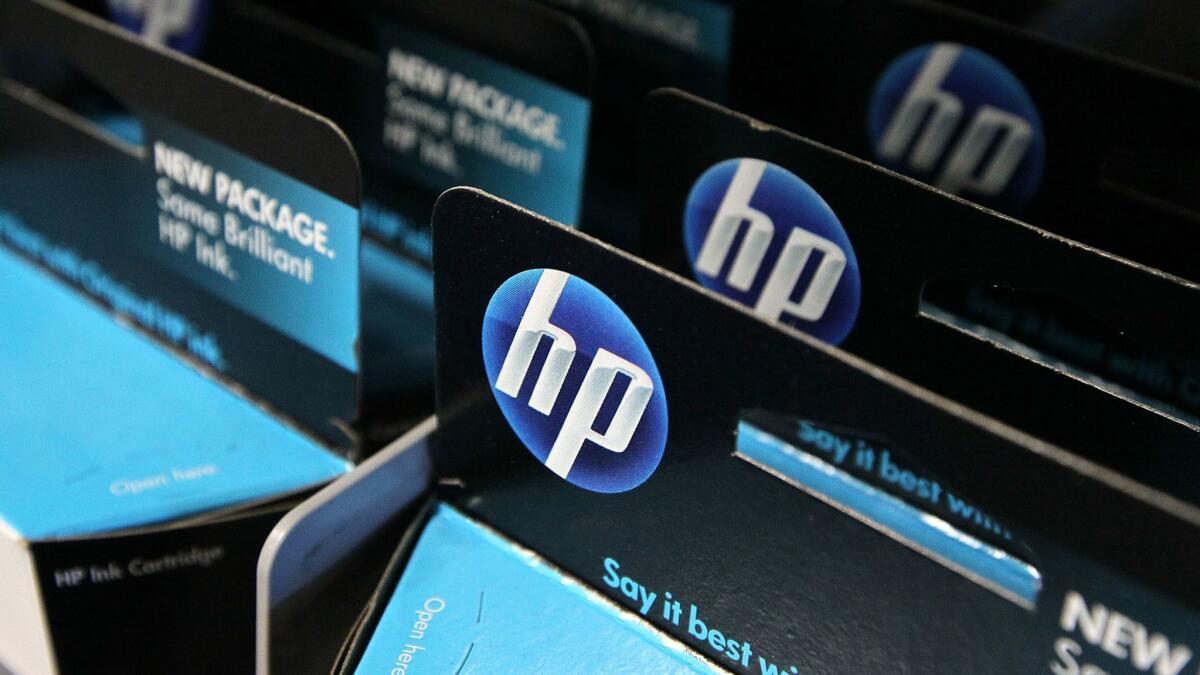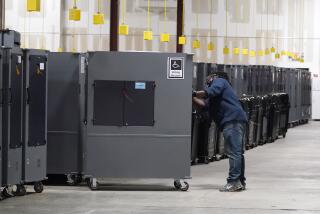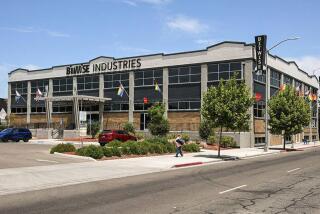Former Autonomy CEO is charged with fraud tied to Hewlett-Packard deal

Michael Lynch, a British entrepreneur and former chief executive of Autonomy Corp., was criminally charged with fraud by the United States tied to the British software maker’s 2011 acquisition by Hewlett-Packard Co.
Prosecutors had long identified Lynch, 53, as a co-conspirator with his chief financial officer at Autonomy, Sushovan Hussain, who was found guilty in April of orchestrating an accounting fraud to arrive at the $10.3-billion price Hewlett-Packard paid for the company.
Autonomy was the U.K.’s second-largest software business at the time. Hewlett-Packard later wrote down its value by $8.8 billion, citing fraud by Autonomy and asking the U.S. Justice Department to investigate. Thursday’s indictment, filed in federal court in San Francisco, also names 46-year-old Stephen Keith Chamberlain, who was Autonomy’s vice president for finance, as a defendant.
Lynch used false and misleading statements from 2009, 2010 and early 2011 “to make Autonomy more attractive to a potential purchaser like HP,” according to the indictment, which says Lynch made $815 million when HP acquired his Autonomy shares.
The charges were filed as lawyers representing Invoke Capital — a London venture capital firm founded by Lynch — are resisting a court order requiring Hussain to disclose details about his financial dealings with Lynch that prosecutors said raise concerns about “potential hush money.”
Hussain, whose sentencing date was postponed, was required to disclose his stake, with Lynch, in Invoke and startup company Darktrace Ltd. U.S. District Judge Charles R. Breyer ordered Hussain to turn over to prosecutors detailed records of the investments, including transactions involving Lynch, by Nov. 22. Hussain’s lawyer, John Keker, is also fighting the order, calling it unreasonable.
Keker; Andrew Kim, a lawyer for Invoke Capital; and Emmanuel Fyle, a spokesman for Hewlett Packard Enterprise Co. in London, didn’t immediately respond to requests for comment on Lynch’s indictment.
The government argues that Lynch’s reassembling of his Autonomy inner circle at the new firm, including Hussain, isn’t illegal by itself but may have created financial relationships that prevented some of those people from coming forward as witnesses.
“Where the same circle of participants who defrauded Autonomy’s investors, HP, and HP’s investors are all reliant on the wealthiest of the co-conspirators, the government has legitimate concerns about hush money,” prosecutors said in a court filing.
Lynch and Hussain also face a $5.1-billion civil case filed by HP in London.
Hewlett Packard Enterprise was formed in the breakup of HP’s corporate computing divisions from its printer and PC business in 2015.
More to Read
Inside the business of entertainment
The Wide Shot brings you news, analysis and insights on everything from streaming wars to production — and what it all means for the future.
You may occasionally receive promotional content from the Los Angeles Times.










